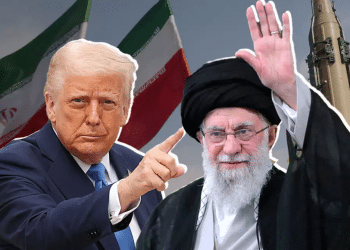For a moment, it seemed that the Israeli-Palestinian conflict would dominate the U.N. General Assembly as well as the international agenda for the coming year, but then came the addresses of U.S. President Donald Trump and Prime Minister Benjamin Netanyahu to focused world leaders' attention on the Iranian issue.
Trump made it clear that his administration plans to focus on the Iranian issue, just like last year, he made it clear that he planned to focus on North Korea.
Meeting with Netanyahu on the sidelines of the U.N. General Assembly, Trump surprised many by officially endorsing the two-state solution – then again qualifying that he would support whichever solution the parties agree to – and by saying his administration plans to roll out the much-anticipated "deal of the century" within a few months.
The Americans may still strive to pitch the deal meant to resolve the Israeli-Palestinian conflict as a real estate transaction, as Trump himself has said, but chances of that are slim, for several reasons.
First, in reality, we are no longer dealing with a two-state solution but rather with a three-state solution, namely Israel, a Palestinian state in the West Bank and a Hamas state in the Gaza Strip. The latter is not going anywhere and it is doubtful its rulers would agree to reconcile with the Fatah-led Palestinian Authority just to facilitate Trump's "deal of the century."
Second, despite rhetoric to the contrary, Arab leaders have no real intention of going over Palestinian Authority President Mahmoud Abbas' head and accepting a deal on the Palestinians' behalf. This leads to the third reason – the Palestinian leadership simply cannot make the necessary historic decisions.
Abbas can definitely protest that "Jerusalem is not for sale" as much as he wants, but the bottom line is that Trump is right – there is no reason why the U.S. should give the Palestinian Authority hundreds of millions of dollars in aid only to be disrespected on the world stage – at least as much as Abbas respects Russian President Vladimir Putin, who has never given the Palestinians a dime.
Moreover, one must remember that international treaties rarely reflect "justice," let alone the Palestinian and their supporters' version of "absolute justice." The Jewish community understood that in 1948, which is why it succeeded in forming a state.
This is why Trump and Netanyahu both chose to focus on Iran at the U.N. General Assembly.
Netanyahu's speech again showcased Israel's intelligence and operational prowess, which time and again make Iran and Hezbollah, its regional proxy, vulnerable.
Trump's speech reiterated the U.S. pledged to prevent Iran from going nuclear and continue disseminating terrorism and chaos in the Persian Gulf and Middle East.
The American president's words were binding and no one knows better than him that his success and international standing in the coming year will be determined, to a large extent, by how he deals with Tehran.
Failing to come up with a good answer to the allegations made against them at the U.N. General Assembly, Iranian Foreign Minister Mohammad Javad Zarif resorted to familiar rhetoric, saying that the Holocaust did not justify the establishment of the State of Israel on Palestinian land.
Hezbollah leader Hassan Nasrallah, for his part, opted for a more "elegant" suggestion, saying, "We do not wish to fight or destroy or throw anyone into the ocean. We call on the Israelis, in the most civilized way possible, to board planes or ships and return to the countries from where they came.
"Only the Jews who lived in Palestine before [the Balfour Declaration] will be able to stay here. The rest, those who came from all over the world, have to leave."
These statements are another good reason why Iran and its allies must be stopped. European leaders would be wise to pay attention before rushing to appease Iran.



